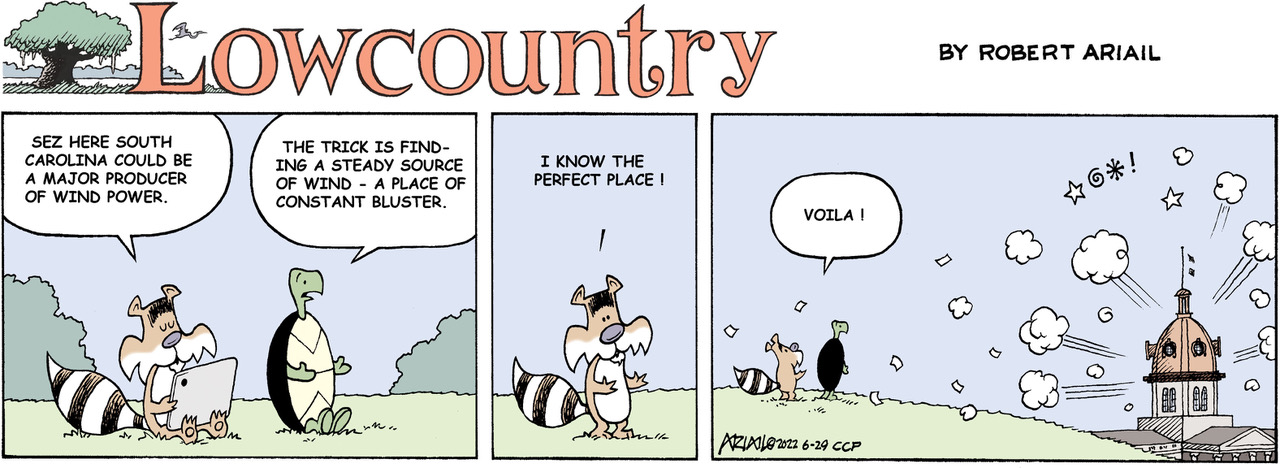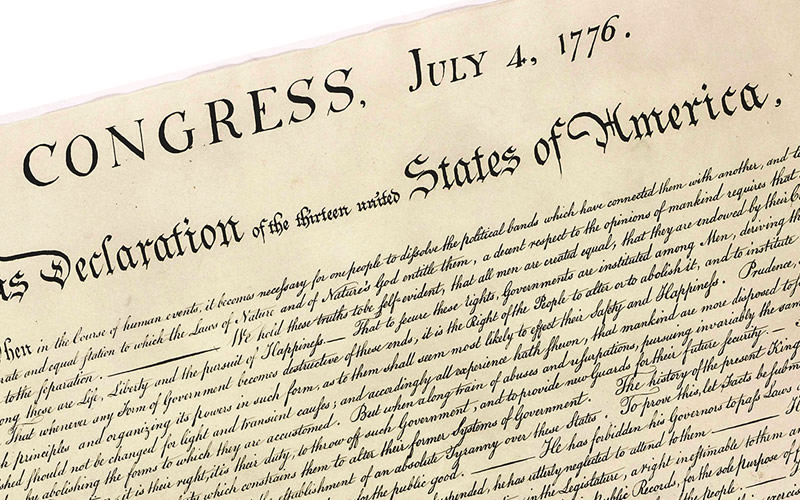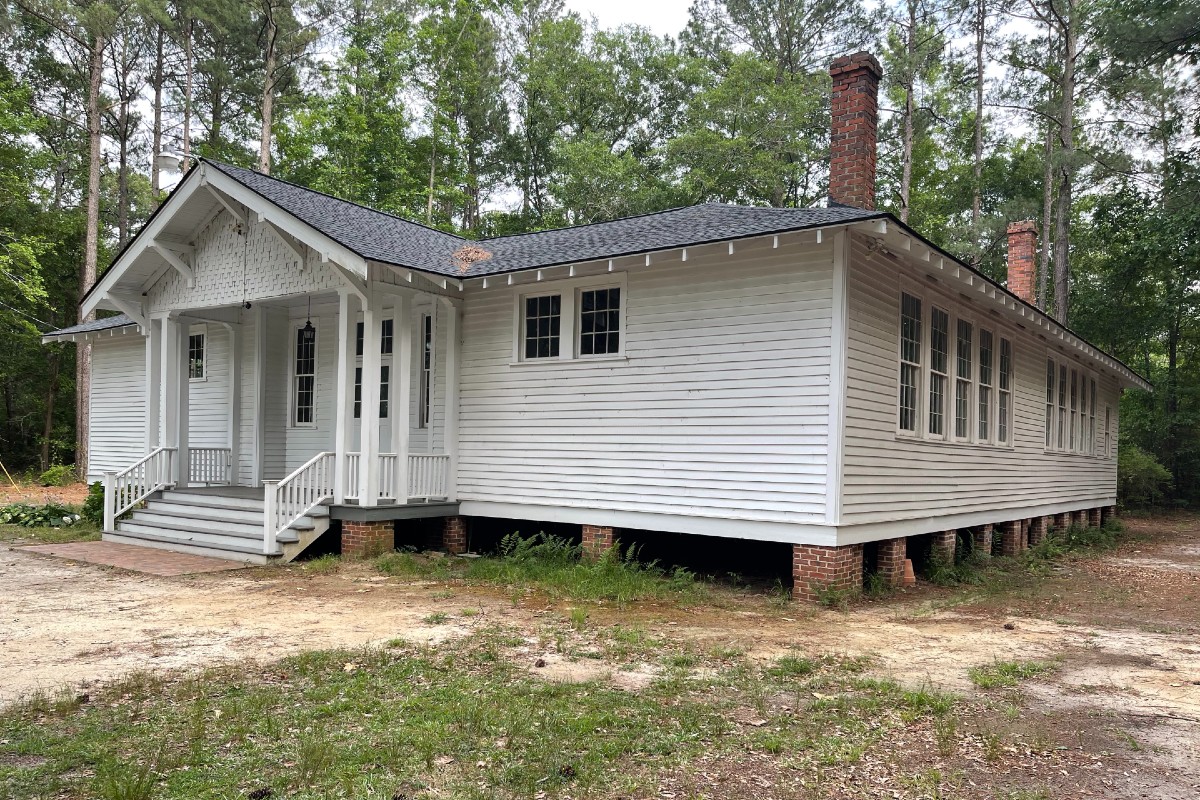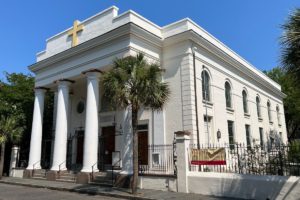STATEHOUSE REPORT | ISSUE 21.26 | JULY 1, 2022
BIG STORY: Weaver’s bid for superintendent under scrutiny for the fall
COMMENTARY, Brack: A new way to boost turnout in S.C. elections
LOWCOUNTRY, Ariail: Wind power
MY TURN, Saul: What is patriotism
FEEDBACK: Think about democracy; A divided America
MYSTERY PHOTO: White, wooden building
Weaver’s bid for superintendent under scrutiny for the fall

By Andy Brack, editor and publisher | Most statewide political candidates are busy enough before election day with strategizing, raising money, shaking hands, attending gatherings, politicking and holding press conferences that they don’t feel like they have enough hours in the day.
But Republican Ellen Weaver, who handily won Tuesday’s primary runoff to be her party’s candidate for state superintendent of education, has an additional worry: She must get a master’s degree to hold the office she’s seeking.
But if she doesn’t, what then? It’s kind of unclear, but lawsuits would be likely.
A qualification added

Back in 2018, state Republicans pushed a statewide ballot referendum to transform the constitutional office of state superintendent from an elected position to one appointed by the governor.
But part of the effort to get the referendum on the ballot was to approve job requirements for an appointed superintendent so the state would have a framework from which to appoint the position if the referendum passed. (It didn’t as more than 60% of voters said they wanted the superintendent to be elected.)
All of the qualifications – except one – were contingent on the position becoming appointed. But the one qualification that was enacted regardless of the referendum was for the state superintendent to have a master’s degree.
According to the relatively new state law, the state superintendent must have “the minimum of a master’s degree and substantive and broad-based experience in the field of public education including, but not limited to, service as a classroom teacher, principal, other school or school district administrator, school district superintendent, or other education policy making body at either the state or local level or any combination of them” or “the minimum of a master’s degree and substantive and broad-based experience in operational and financial management in any field of expertise including, but not limited to, finance, economics, accounting, law or business.”
Weaver, who did not respond to inquiries related to this story, is president and CEO of the Palmetto Promise Institute, a statewide think tank that dabbles in education, energy, health care and tax issues. Weaver, once a key adviser to former conservative U.S. Sen. Jim DeMint, has not been a teacher or served in a classroom or “education policy making body.” She has, however, served as chair of the S.C. Education Oversight Committee, a state-appointed group that evaluates education but doesn’t set policy.
Should Weaver be able to run?
While the new qualification has long been public record, it didn’t get much attention until March when The Post and Courier published a story. According to the Associated Press, “several candidates dropped out while others like Weaver pledged to obtain advanced degrees.”
In April, Weaver said she started an advanced degree in educational leadership at Bob Jones University and promised to finish it by November. According to media reports, the program at university – where she also got her undergraduate political science degree – usually takes a year to 18 months to complete, but students can set their own pace.
In June, the state Attorney General’s office issued a 9-page legal opinion on whether the S.C. Election Commission potentially would be caught in a controversy of having to figure out whether Weaver could be a candidate. The opinion essentially absolved the election commission, saying it was up to political parties to certify candidate qualifications. The parties must certify that a candidate “meets or will meet by the time of the general election, or as otherwise required by law, the qualifications for the office for which he has filed.” The opinion goes on to say that candidates who don’t meet or will not meet qualifications for which he has filed “shall not be nominated and certified.”
What’s next?
At this point, Weaver, who has long pushed using public funds to pay for private schools, may be in the clear for the November election – if she gets the master’s degree. But at least three possibilities exist:
Lawsuit before the election. The attorney general’s opinion is only an opinion. Some say advocacy groups could bring a lawsuit before the November election to try to find Weaver ineligible for the ballot. Possibly at issue: Whether the Bob Jones advanced degree was something crafted for Weaver to qualify.
Lawsuit after the election. If Weaver wins but doesn’t have a master’s degree by the election or by January when the superintendent is to be sworn in, there likely would be a lawsuit challenging the qualifications of state law or a suit over whether she was disqualified from serving.
“Rules are rules and they would be enforced by the court system, if there’s an issue,” said state Sen. Brad Hutto, an Orangeburg Democrat who is Senate minority leader..
Vacancy. If Weaver didn’t meet the qualifications, the state election commission might intervene and say the position was vacant, which could trigger a new statewide election.
On Tuesday, Weaver didn’t appear bothered by the requirement for a master’s degree.
“Tonight we saw that voters understand the real qualification for this job is leadership and a strong backbone,” Weaver said in the AP story. “That said, I will fully fulfill all the legal obligations to hold this job. I will complete my master’s degree in educational leadership in October ahead of the general election.”
Weaver faces Democratic candidate Lisa Ellis, a teacher who founded a statewide teachers’ group, and Green Party candidate Patricia Mickel, a teacher. Both reportedly have master’s degrees.
- Have a comment? Send to: feedback@statehousereport.com
A new way to boost turnout in S.C. elections

By Andy Brack | It is nothing short of shameful that only 6.8 percent of registered South Carolina voters did their duty to vote in Tuesday’s runoff elections.
 Sure, there wasn’t much excitement, with only two statewide races and six S.C. House seats on ballots across the state. But that doesn’t matter: Voting is a fundamental responsibility of all Americans 18 years and older. Too many people have died for us to slough off what needs to be done to keep our participatory democracy strong and functioning.
Sure, there wasn’t much excitement, with only two statewide races and six S.C. House seats on ballots across the state. But that doesn’t matter: Voting is a fundamental responsibility of all Americans 18 years and older. Too many people have died for us to slough off what needs to be done to keep our participatory democracy strong and functioning.
What makes the abysmal turnout rate even worse are the recent threats to our democracy that have been front and center in the last few weeks at explosive hearing after hearing on Capitol Hill. Exposed have been extraordinary excesses by former President Donald Trump and his minions to thwart democracy and try to interfere with the peaceful transfer of power. If that kind of raging meddling doesn’t fill any American with a sense of duty to get our democracy back on track, what will?
Yet voter turnout was little better on June 14, when 565,538 of 3.3 million registered voters – 17.1 percent – went to the polls in Democratic and Republican primaries.
Same story in previous years – 2.8 percent turnout in the 2020 primary runoffs; 23 percent turnout in the 2020 primaries; 12.7 percent turnout in the 2018 primary runoffs; and 20.4 percent turnout in the 2018 primaries.
Voter participation in general elections is better – 72.1 percent with 2.5 million votes cast in the 2020 presidential election and 55 percent with 1.7 million votes cast in the 2018 statewide election. Turnout generally is lower in non-presidential election years. But still: Hundreds of thousands of voters, even in higher-turnout years, don’t bother to do their civic duty.
Other countries around the world – which learned how to do freedom from us – have something we should consider: They make voting in elections mandatory. Consequently, their participation rates are extremely high. And people feel more invested in picking leaders. In Australia, for example, which has had compulsory voting since 1924, turnout rates have been more than 90 percent for years.
Why can’t we get more people to participate?
The way Australia does mandatory voting is to fine anyone who doesn’t have a good reason. First-time offenders are fined $20, which is increased to $50 for subsequent offenses.
If the 980,000 registered voters in South Carolina who didn’t go to the polls in the 2020 general election had been fined $50, the state could have collected $49 million, which would have more than paid for the state’s elections and its infrastructure.
But let’s turn Australia’s disincentive for not voting from a stick into a carrot. What if, in South Carolina, we gave everyone a $25 income tax credit – a reward – for voting, instead of a fine? In the 2020 general election, the 2.5 million voters who cast ballots would have received tax credits worth $62.5 million. It also means the state Department of Revenue would have had $62.5 million less to send to the legislature to spend, but who’s against the state of South Carolina having less money to spend?
The importance of voting is celebrated by Democrats, Republicans – and comedians.
Former President Barack Obama, in addressing youths, once remarked, “You wouldn’t let your grandparents pick your playlist. Why would you let them pick your representative who’s going to determine your future?”
Abraham Lincoln, the president who saved the country from breaking apart in the 1860s, noted, ““The ballot is stronger than the bullet.”
And comedian George Carlin: “If you don’t vote, you lose the right to complain.”
And the good Lord knows, Americans love to complain. Let’s do something new to encourage voting and get as many South Carolinians to the polls as possible to exercise their citizenship.
Andy Brack is publisher of the Charleston City Paper and editor and publisher of Statehouse Report. Have a comment? Send to: feedback@statehousereport.com.
Wind power

Cartoonist Robert Ariail often interprets things a little differently, but always has an interesting take on what’s going on in South Carolina. Love the cartoon? Hate it? What do you think: feedback@statehousereport.com.
What is patriotism?

“The quality of being patriotic; devotion to and vigorous support of one’s country”
By Dr. Robert Saul, republished with permission | This time of year (between Memorial Day including Juneteenth and up to the Fourth of July) we are often confronted with the issue of patriotism. I say confronted because I don’t think patriotism is some simple concept. It requires work to adhere to the principles of freedom as espoused by our Founding Fathers. It requires actions that are consistent with those principles. So one has to be confronted, often uncomfortably, with what we as a collective citizenry have done that justifies “devotion to and vigorous support of one’s country” and what we have done or have not done that reasonably questions our past actions and demands change so that we can be devoted to and vigorously support our country. My concept of confrontation here is not a belligerent one but one of introspection seeking to improve the lives of others and the lives of our communities. Patriotism is not passive. Patriotism requires action.
 Patriotism is not red, white and blue displays. Too many folks think that they can don the mantle of patriotism, waving a flag, wearing red, white and blue clothing, watching fireworks, or singing songs, without doing the hard work. Those actions alone do not address the steps needed to assure that the freedoms put forth over 250 years ago continue. Freedom is not really ours. It is a gift from a higher being and has been made holy by the lives of so many that have died in its name for the good of us all.
Patriotism is not red, white and blue displays. Too many folks think that they can don the mantle of patriotism, waving a flag, wearing red, white and blue clothing, watching fireworks, or singing songs, without doing the hard work. Those actions alone do not address the steps needed to assure that the freedoms put forth over 250 years ago continue. Freedom is not really ours. It is a gift from a higher being and has been made holy by the lives of so many that have died in its name for the good of us all.
Patriotism is not hollow words. Too many folks simply say that they are patriotic while performing acts that are counter to the basic tenets of our founding. If indeed as Thomas Jefferson has stated that “all men are equal,” then acts that run counter to that are not patriotic. Accusing political opponents of being unpatriotic just because you disagree, treating others with disdain and actively saying you hate them are acts that betray a civil society, and a civil society is what our Founders were searching for in the exodus from the King of England. Again, actions are what counts. If we are unwilling to seek the answers to past errors (maltreatment of Native Americans, enslavement of millions, horrific lynchings, purposeful civil rights abuses, mistreatment of immigrants, to start a long list), then we are not willing to move on. Too many currently see such an exercise as a blame game and want to avoid it. I see it as a journey toward reconciliation, the only way we can move forward as a unified society that seeks to glorify our successes and acknowledge our need for continuous improvement.
Abraham Lincoln had it right. In his second inaugural address in 1865, after over 620,000 Americans died in a brutal civil (actually a quite “uncivil”) war, President Lincoln offered the following conciliatory remarks, “with malice toward none; with charity for all; with firmness in the right, as God gives us to see the right, let us strive on to finish the work we are in; to bind up the nation’s wounds; take care for him who shall have borne the battle, and for his widow, and for his orphan—to do all which may achieve and cherish a just, and a lasting peace, among ourselves, and with all nations.” The nation had just been ripped apart and was barely coming back together. Lincoln so eloquently articulated the path forward—to live “with malice toward none, with charity for all.” This simple yet profound entreaty provides that path forward and requires our attempted adherence to be true patriots.
Patriotism is a mix of things. If patriotism requires actions, not displays, what are those actions? I am a firm believer in the following components, generously intermixed and sprinkled with love and compassion –
- TRUTH – Truth is an accumulation of facts. Unfortunately, an incomplete group of facts can be twisted into untruths. We must always be truth-seekers and willing to listen to all of the facts, not just the convenient ones.
- TRUST – Trust is earned. Trust is earned when people use their knowledge, their humanity and their empathy to engage with other citizens. As a physician, trust is vital to my patients and families. If I don’t use all of my professional knowledge, acknowledge my humanity and employ all of my empathy, I will not be trusted. Saying “trust me” is not sufficient. If one’s cumulative behaviors are not trustworthy, it is very hard to trust someone. They must earn our trust and that is an ongoing process.
- SCIENCE – Science is an incredibly important component in today’s society. So many policy decisions (how to protect the environment and our planet, how to improve health, how to protect the public from life-threatening infection and many more) should be based on sound science. An incomplete application of science (just like an incomplete group of facts) is potentially dangerous and does not serve the public good, only those with a selfish agenda. We cannot allow science to be perverted.
- CIVILITY – Civility is key to social interactions. Without civility, social discourse completely deteriorates. Name-calling serves no useful purpose and only serves to dehumanize and belittle our fellow citizens. Our ability to maintain civility needs constant attention. Treating each other as we want others to treat us is so important.
- DIVERSITY – Diversity in America is a vital part of our society, now and at our founding. We must embrace our diversity. It is what makes us strong. And remember diversity means more than just ethnicity. It includes age, gender, sexual orientation and so much more.
- FAITH – Faith provides a moral compass. We are a nation of many faiths. When observed with integrity, faith allows us to love others and practice forgiveness in a manner that serves all.
Patriotism requires action. Displays of patriotism without the requisite actions are incomplete in my estimation. As we commingle truth, trust, science, civility, diversity and faith and remember the words of Jefferson (“all men are created equal”) and internalize the words of Lincoln (“with malice toward none, with charity for all”), we can begin to be true patriots and exhibit strong devotion and vigorous support of our country. That is what patriots do to honor all of those that came before us and to provide a solid foundation for generations to come.
Dr. Robert Saul is a retired pediatrician who lives in Greenwood. A noted author, he writes about parenting and children at MyChildrensChildren.com. Have a comment? Send to: feedback@statehousereport.com.
Yes, think about democracy
To the editor:
![]() I’m grateful for your opinion piece “It’s time to think deeply about our democracy,” especially given the recently approved platform developed by the Texas GOP. It seems like some Americans are “lazy news consumers” who prefer to be passively fed “news” that has been pre-digested and delivered with a slant from a solitary source. They also would not think of watching the Jan 6 committee meetings because they might have to confront untruths they have clung to.
I’m grateful for your opinion piece “It’s time to think deeply about our democracy,” especially given the recently approved platform developed by the Texas GOP. It seems like some Americans are “lazy news consumers” who prefer to be passively fed “news” that has been pre-digested and delivered with a slant from a solitary source. They also would not think of watching the Jan 6 committee meetings because they might have to confront untruths they have clung to.
We are in a scary place now with the recent Supreme Court rulings and Americans need to examine why they live here if they don’t like the protections that the federal government affords them. Thanks for making all of who read your piece think hard about that.
– Denice Kark, Salem, S.C.
A divided country
To the editor:
The country is divided locally neighbor by neighbor. That is an important factor. The micro precinct-level divisions aggregate through gerrymandered lines up to a state red-blue dominance through to an incorrectly weighted Senate to the Supreme Court it creates. This is an organized force much like the Trump coup inquiry has revealed recently.
The temptation is to apply the coloration using the state-level political beliefs and their associated policies as their legislatures holding majority power do. Negating acceptance, caveats, carve-outs, or any accommodation. Suppression to accomplish extinction is preferred.
The availability of abortion services by state adds to the current cleavage of an indivisible America. Disregard the Republican third Texas secession as kooky for now but it does suggest the state of mind.
Voter suppression, rreplacement theory acceptance, white racial suppression (critical race), zero abortion services and potentially the other privacy-based rights serve to irk a majority. Government policy is unable to modify beliefs and starts to feel weighty, burdensome, or oppressive.
Migration has been one of the primary responses to such weights (New England Puritanical settlements, U.S. western expansion, Great Southern migration, suburban expansion, etc. Recent trends of U.S. migration are down since 2000 from the historical rate.
The ubiquitous availability of open employment positions nationally, in particular in the larger metro cities that tend to be less hostile to the other and the differences are an enabling factor. When linked to the underlying weighty forces, they could trigger another round of movement. Housing in the receiving/ destination places is the primary limiting factor.
The 2024 electoral outcome could be the single biggest influence to trigger the next resettlement. It would not be as large as the population transformation of India-Pakistan after WWII. Still, lots of factors need to play out.
What do we call this place then: The Balkan States of America. When the great power decline was operationalized.
– Fred Palm, Edisto Island, S.C.
- Have a comment? Send your letters or comments to: feedback@statehousereport.com. Make sure to provide your contact details (name, hometown and phone number for verification. Letters are limited to 150 words.
White, wooden building

The Mystery Photo is back after a vacation hiatus. This week, try your hand at guessing what the reader who submitted it described as a difficult picture. What is this white building and where is it? Send your name and hometown – along with your guess – to feedback@statehousereport.com.
 The last mystery we offered showed a building with a classic design. Hats off to the readers who correctly identified it as St. Mary of the Annunciation Catholic Church on Hasell Street in Charleston. Correct guessers were: George Graf of Palmyra, Va.; Elizabeth Jones, Jay Altman and Jean Prothro, all of Columbia; Bill Segars of Hartsville; Jacie Godfrey of Florence; Penny Forrester of Tallahassee, Fla.; Allen Peel of San Antonio, Texas; Pat Keadle of Wagener; and David Lupo of Mount Pleasant.
The last mystery we offered showed a building with a classic design. Hats off to the readers who correctly identified it as St. Mary of the Annunciation Catholic Church on Hasell Street in Charleston. Correct guessers were: George Graf of Palmyra, Va.; Elizabeth Jones, Jay Altman and Jean Prothro, all of Columbia; Bill Segars of Hartsville; Jacie Godfrey of Florence; Penny Forrester of Tallahassee, Fla.; Allen Peel of San Antonio, Texas; Pat Keadle of Wagener; and David Lupo of Mount Pleasant.
Jones tells us that “St. Mary’s was the first Roman Catholic parish in the two Carolinas and Georgia. It’s the mother church of the dioceses of South Carolina, North Carolina and Georgia. The current building was erected on the site in 1838. The original building and property were purchased in 1789.”
>> Send us a mystery picture. If you have a photo that you believe will stump readers, send it along (but make sure to tell us what it is because it may stump us too!) Send to: feedback@statehousereport.com and mark it as a photo submission. Thanks.
- ORDER NOW: Copies are in Lowcountry-area bookstores now, but if you can’t swing by, you can order a copy online today.
- Now available as an e-book!
ABOUT STATEHOUSE REPORT
Statehouse Report, founded in 2001 as a weekly legislative forecast that informs readers about what is going to happen in South Carolina politics and policy, is provided to you at no charge every Friday.
- Editor and publisher: Andy Brack, 843.670.3996
Donate today
We’re proud to offer Statehouse Report for free. For more than a dozen years, we’ve been the go-to place for insightful independent policy and political news and views in the Palmetto State. And we love it as much as you do.
But now, we can use your help. If you’ve been thinking of contributing to Statehouse Report over the years, now would be a great time to contribute as we deal with the crisis. In advance, thank you.
Buy the book
Now you can get a copy of editor and publisher Andy Brack’s We Can Do Better, South Carolina! ($14.99) as a paperback or as a Kindle book ($7.99). . The book of essays offers incisive commentaries by editor and publisher Andy Brack on the American South, the common good, vexing problems for the Palmetto State and interesting South Carolina leaders.
More
- Mailing address: Send inquiries by mail to: P.O. Box 21942, Charleston, SC 29413
- Subscriptions are free: Click to subscribe.
- We hope you’ll keep receiving the great news and information from Statehouse Report, but if you need to unsubscribe, go to the bottom of the weekly email issue and follow the instructions.
- Read our sister publication: Charleston City Paper (every Wednesday in print; Every day online)
- © 2022, Statehouse Report, a publication of City Paper Publishing, LLC. All rights reserved.


